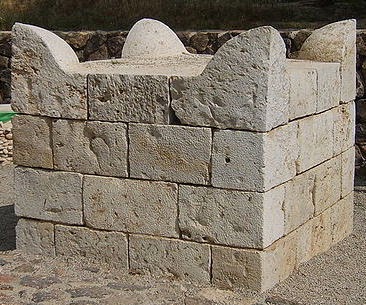Fire Will Not Go Out
Staring out
the window. Gaze only met by steely grey heavens. Frost-speckled glass
separates. Bowed down by prayer-burdens, shoulders sink lower than the matte
heavy clouds outside.
“The Lord spoke to
Moses, saying, ‘Command Aaron and his sons, saying, This is the law of the
burnt offering. The burnt offering shall be on the hearth on the altar all
night until the morning, and the fire of the altar shall be kept burning on it….
Fire shall be kept burning on the altar continually; it shall not go out’”
(Lev. 6:8-9, 13).
Into the
matte grey winter days, into our feelings of distance, into our separation,
into our burdened wearies comes the voice of the Lord. “This is the law of the burnt
offering….” Hope in Leviticus? The chiastic structure of Leviticus 6:8-13
clearly shows the emphasis: “The fire shall not go out.” The fire shall not go
out. Brilliance sparkles into the matte grey winter day.
The fire,
the burnt offering, as well as the instructions about the linen garment and the
care of the ashes all speak to the holiness of God. Holy. Separate. Pure from
all that is not perfect. And we find ourselves on the other side of the clouds,
separated, alienated, unclean, unholy.
But God so
loved the world that he sent fire. That is, he made a way to atone for sin.
Burnt offerings, linen garments, instructions about ashes may seem a strange
and a distant way to worship God. A distant way for God to show his love. But
dare we forget he is holy?
Note—the
fire would come from the Lord himself. “And fire came out from before the Lord
and consumed the burnt offering and the pieces of fat on the altar, and when
all the people saw it, they shouted and fell on their faces” (Lev. 9:24). His
own holy fire. His own bridge to
himself. He came down.
And he
commands that the fire will not go out. There is a continual way to access the
Father. A continual form of intercession for continual sinners like us. The
perpetuity of his own original fire shows his continual desire to be with us,
to allow us to come before him.
That
perpetual fire of the Lord still burns. Still? But no temple? No altar? No
burnt offerings in our churches? Yes, but lift your eyes to the true temple in
the heavenlies. God gave Moses exact instructions to mirror the true temple in
the heavens. The earthly was but a shadow of the heaven (Heb. 8:5; 10:1). And we have a High Priest who entered the
heavenly temple and made a perfect burnt offering once for all (Heb. 10:19-21).
And he remains, interceding for his people as our high priest (Heb. 4:17; Heb.
7:25). Perpetual Priest. Perpetual intercession. Perpetual presence. The fire
will not go out, the fire from his own holy lips.
“…he always lives to
make intercession for them” (Heb. 7:25).
The matte
grey sky no longer looks as bleak. It is not a steely chasm. For God so loved
the world that he sent his Son. He made a way for us to come to him, much
closer than through burnt offerings. So close, no longer do we worry about holy
linen garments, but can run to him. And the clouds no longer seem so heavy, and
prayer burdens are lighter. For Christ himself is praying for us, interceding
for us. The fire will not go out. And as priests being renewed in the image of
our High Priest, we all lift up our voices. The fire will not go out.



Comments
Post a Comment